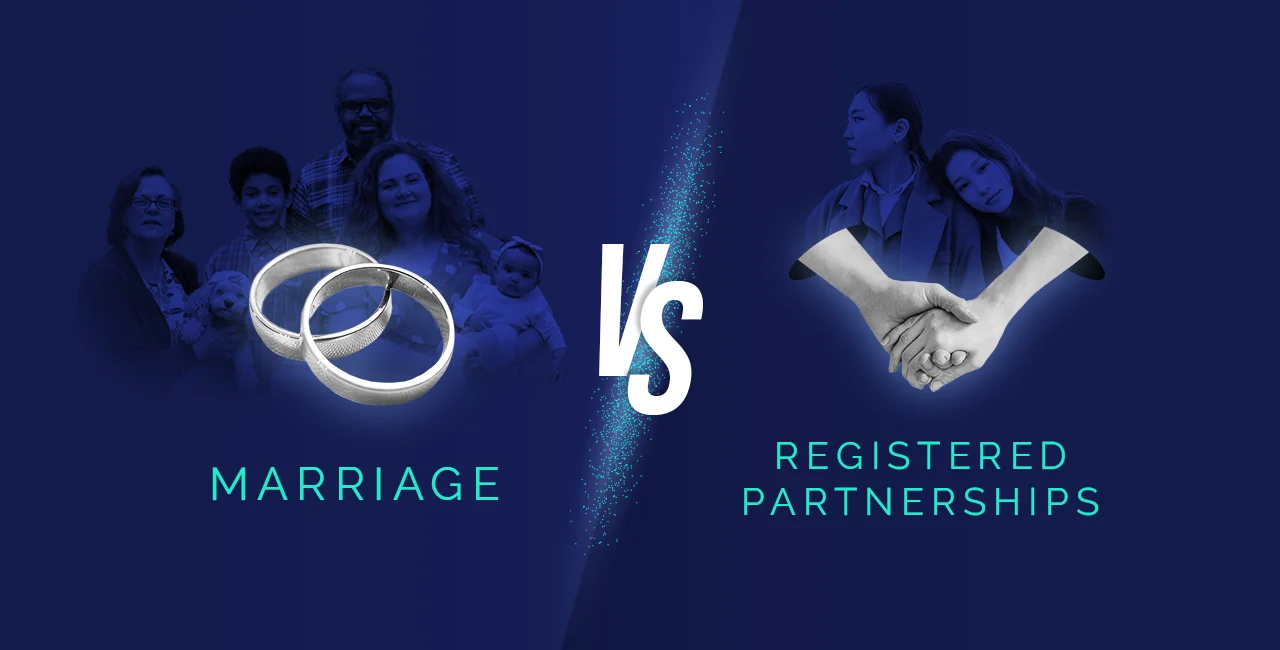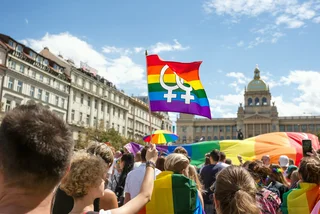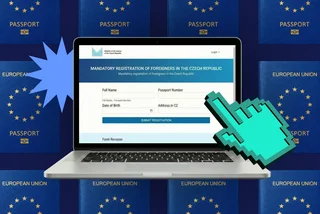Czechia is in the process of legalizing marriage for gay and lesbian couples, and, while this might take some time, LGBTQ+ people can already enter into registered partnerships. Though marriage and partnership might seem synonymous, crucial distinctions exist. As Pride Week starts in Prague, we are taking a look at the issue.
At the forefront of the marriage equality movement is the organization Jsme fér, which champions the cause through its dedicated website, elucidating the concept and updating people on current progress. "Lesbian and gay people have the same civil obligations as others, paying identical taxes. Hence, they should enjoy comparable civil rights," Jsme fér declares on its platform. They assert that the disparities between marriage and partnership encompass three key realms: symbolism and administration, child-rearing, and property rights.
Symbolic and administrative differences
Symbolically, a registered partnership involves an administrative procedure akin to registering a vehicle. In contrast, marriage is hailed as a societal cornerstone, symbolizing a public, formal affirmation and acknowledgment of a bond between two individuals.
Although pending legislation could streamline partnership registration, a mere 14 offices across the country, overseen by a registrar without witnesses, currently handle this process. In contrast, engaged couples can marry at numerous registry offices, with the ceremony officiated by the mayor, deputy mayor, or a duly authorized council member, alongside two witnesses.
Through marriage, spouses gain relatives such as brothers-in-law and sisters-in-law, relationships recognized by law. Conversely, registered partnerships omit this recognition of extended kin.
One partner not recognized as a parent
Regarding child-rearing, married couples have the option to adopt a partner's child from a prior relationship, to jointly adopt an orphaned child, or to become foster parents. These possibilities aren't available to those in registered partnerships.
"The inability to jointly adopt a child or adopt the partner's child means that legally recognized parenthood ('legal parent') remains exclusive to one member of the couple, even if both contribute equally to child rearing. The other ('factual parent') is essentially a legal stranger to the child," Jsme fér explains.
In partnerships, only one parent holds legal recognition by schools, thus the other partner lacks the right to pick up the child or attend school functions. Similar restrictions arise in hospitals, where only one parent can access medical information, participate in treatment, or be present in certain circumstances. Children in partnerships lack legal inheritance rights from both parents due to the non-custodial parent's unrecognized status.
Upon divorce, a legal framework governs visitation rights and child support for married couples. In contrast, the dissolution of a partnership leaves children in a legal void, with no provisions for visitation or support for the non-custodial parent.
Joint property and a common last name
Upon marriage, couples can choose a joint surname, an option not extended to partnership participants. Couples that marry benefit from two days off work per spouse for the event, a privilege not granted to partners.
Marriage automatically entails joint property ownership, simplifying matters by negating the need for power of attorney. Furthermore, a surviving spouse is entitled to a pension and other benefits, a privilege not extended to surviving partners.
Jsme fér points out there is only one love. LGBTQ+ couples and families with children live completely normal lives, and like most people, they have the same joys and worries. "There is no reason for the state to distinguish between the union of a man and a woman or the union of two women or men," Jsme fér says.












 Reading time: 3 minutes
Reading time: 3 minutes 



























